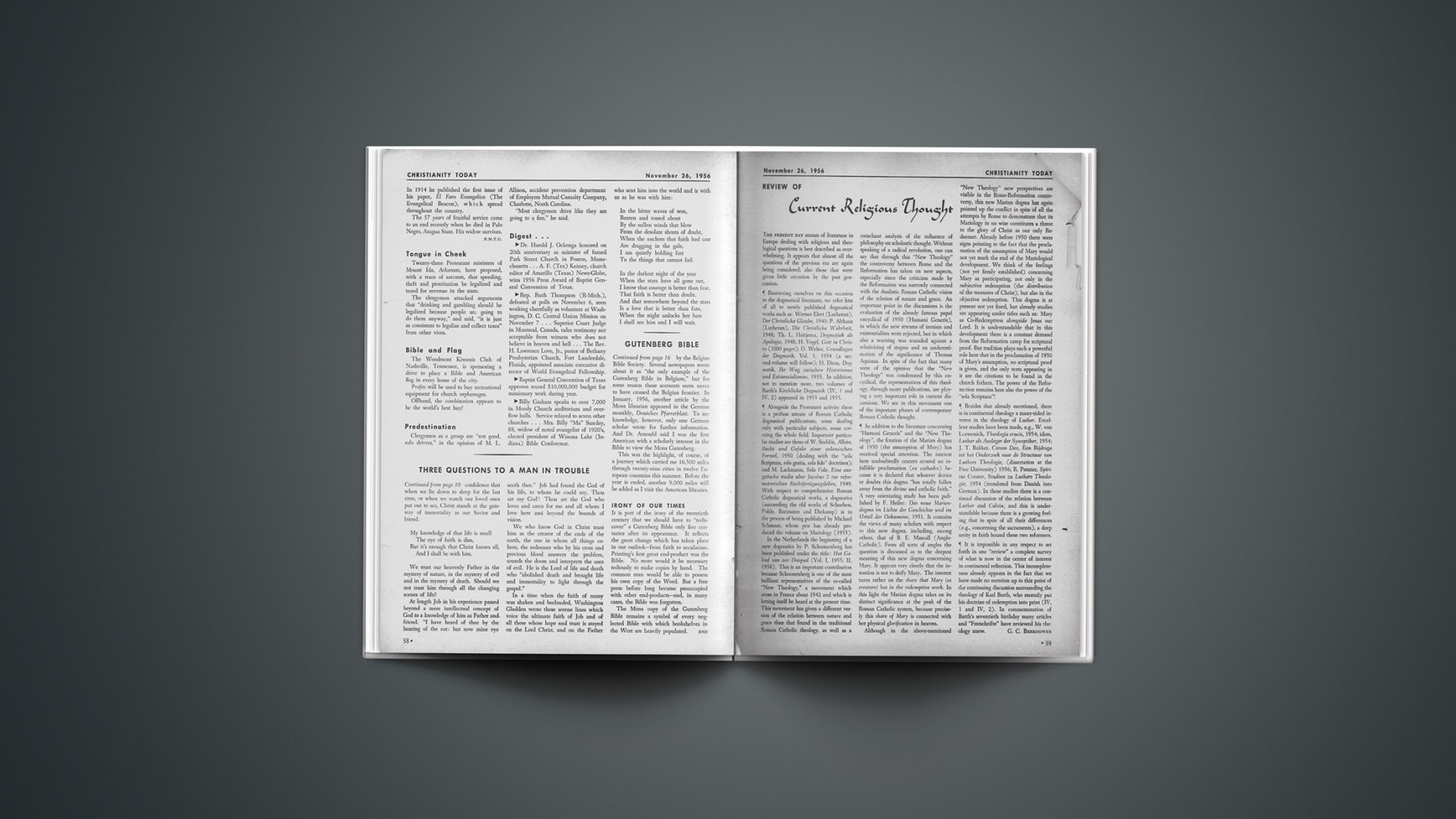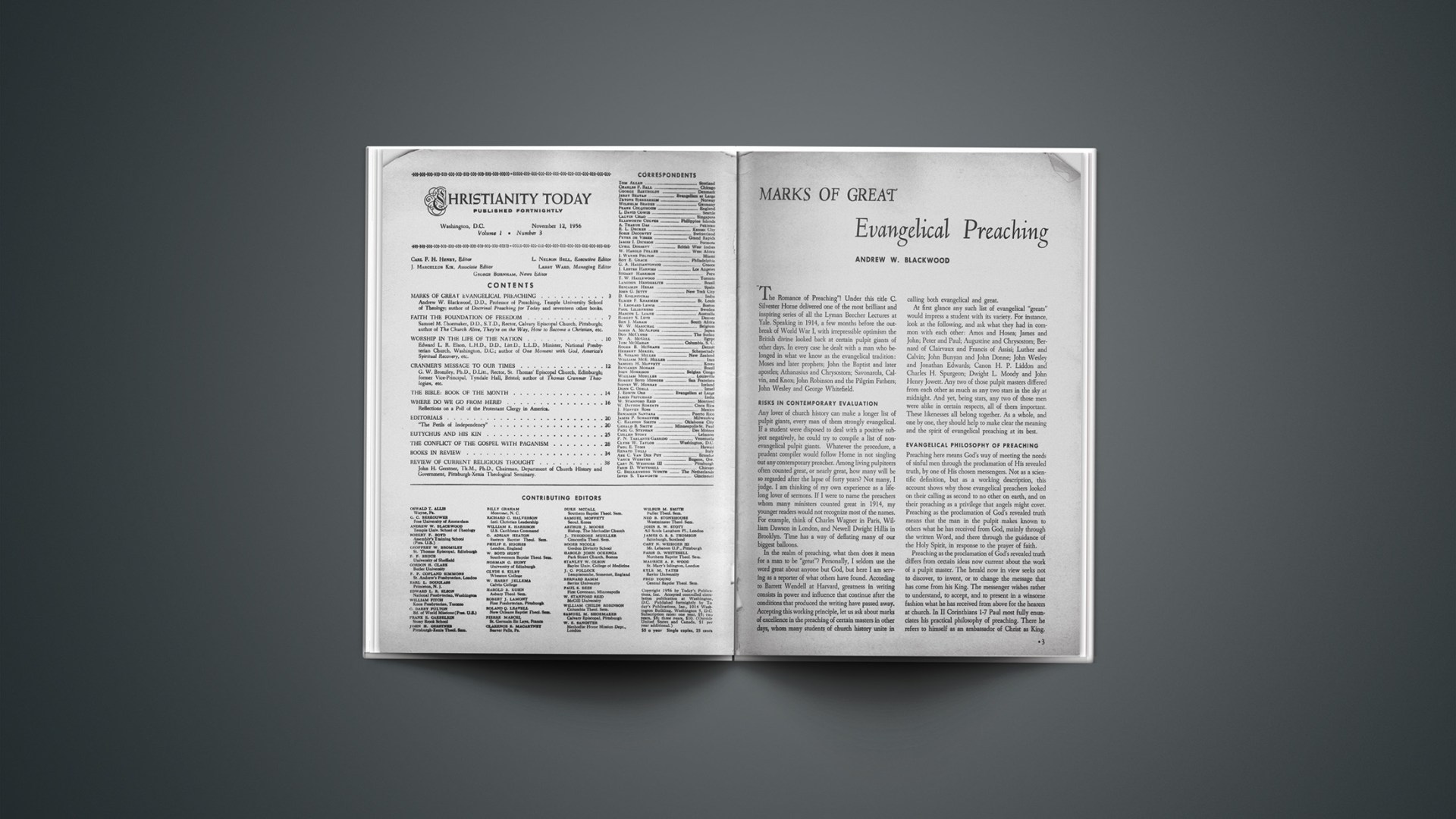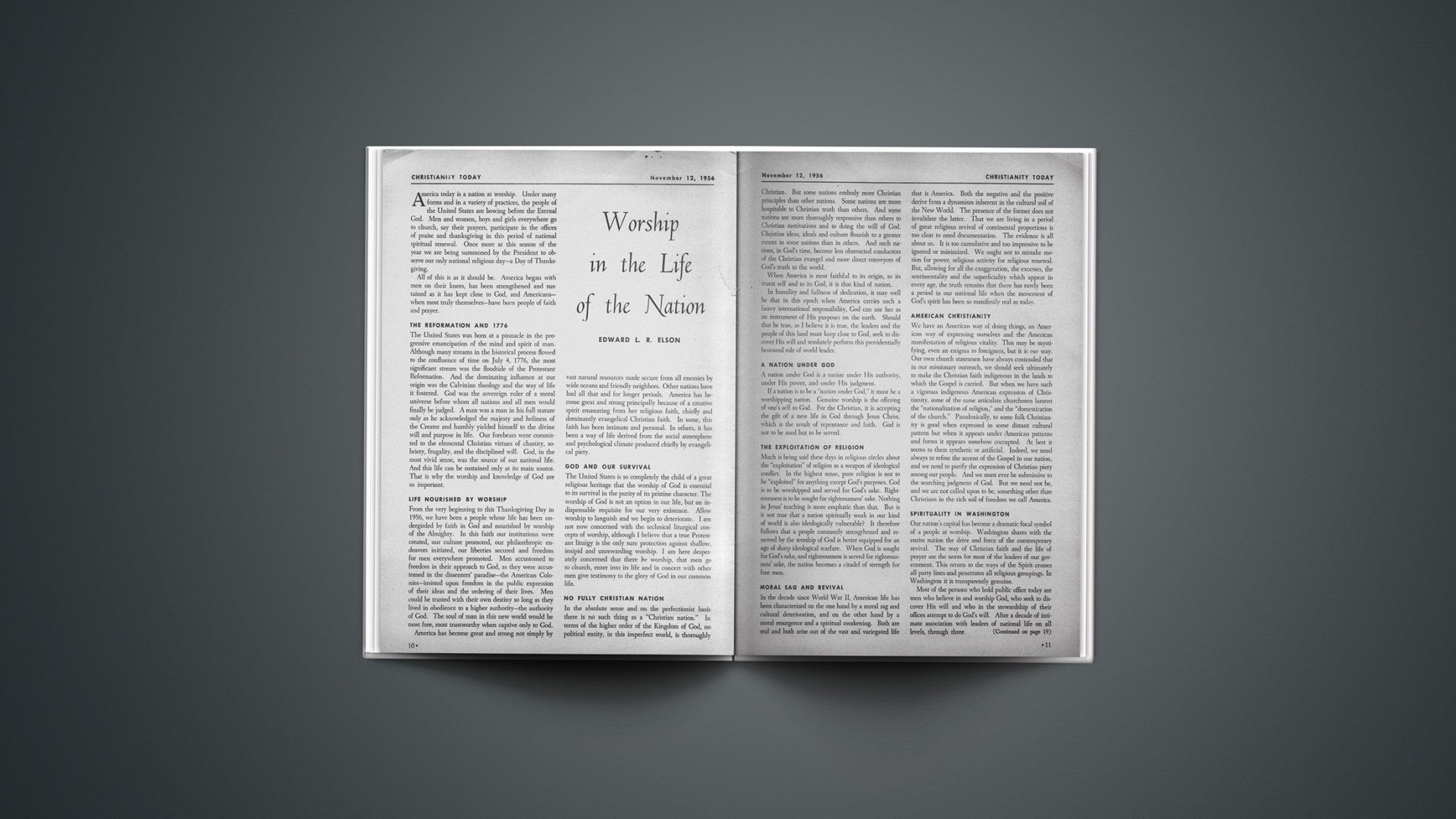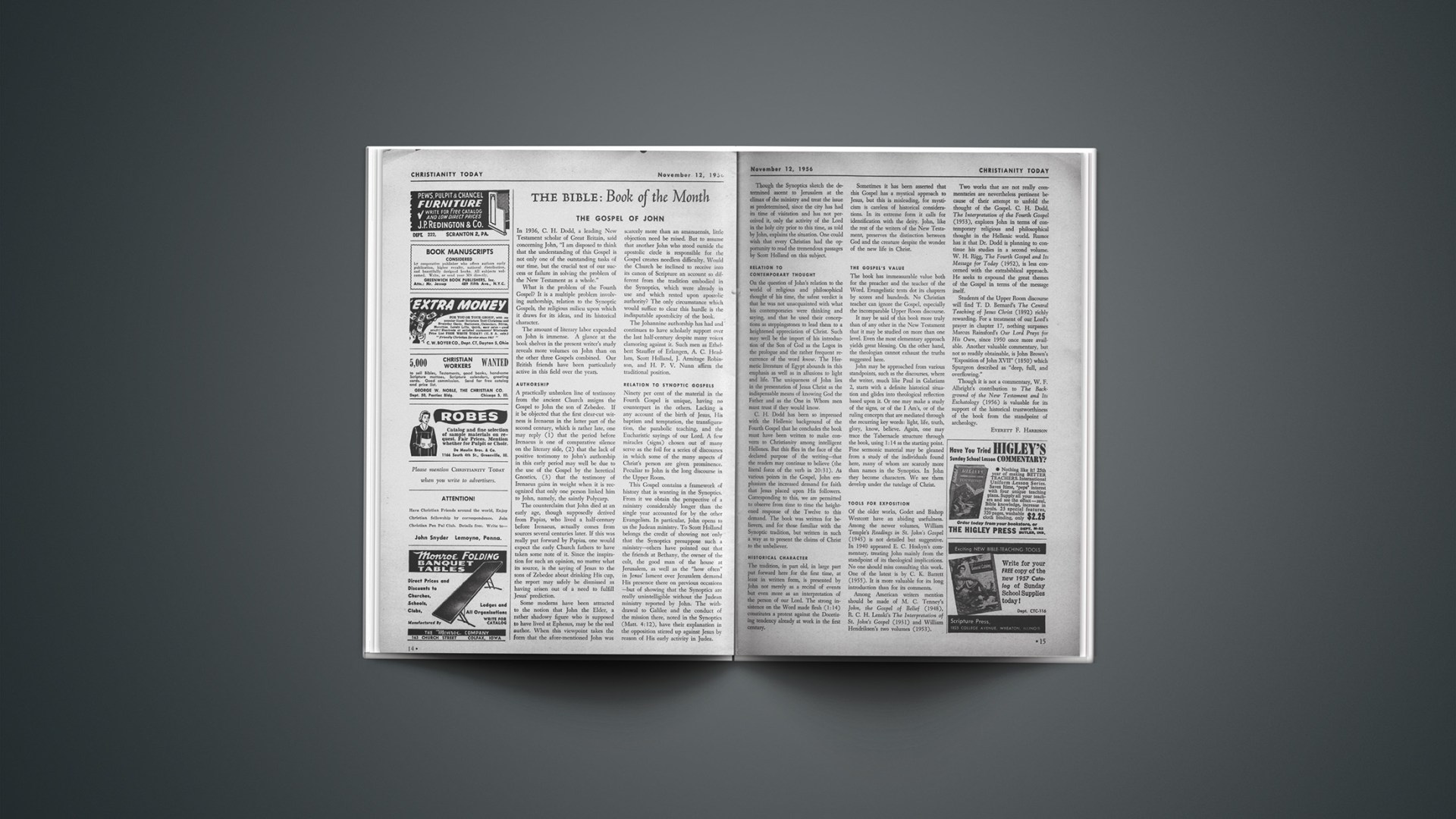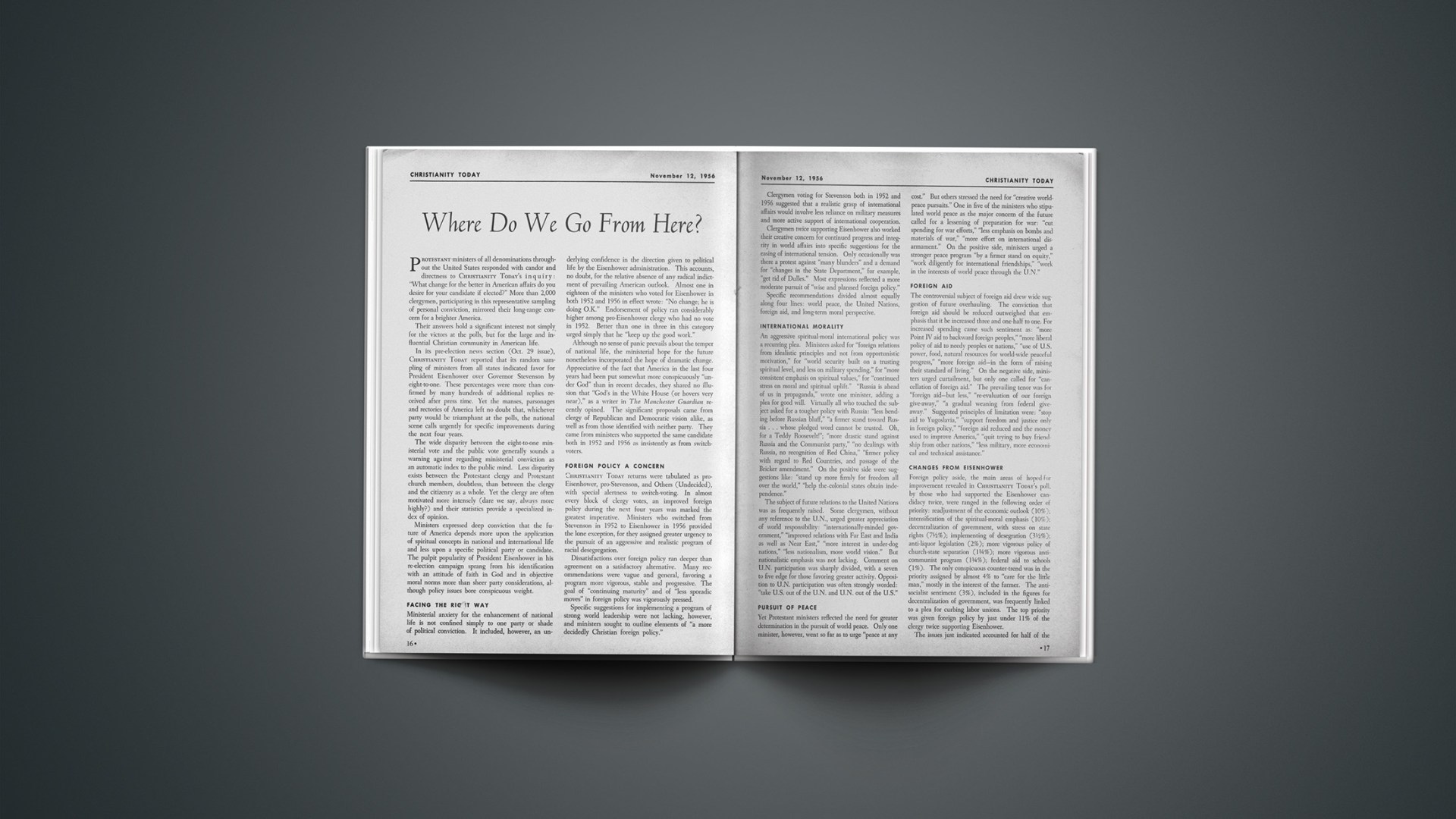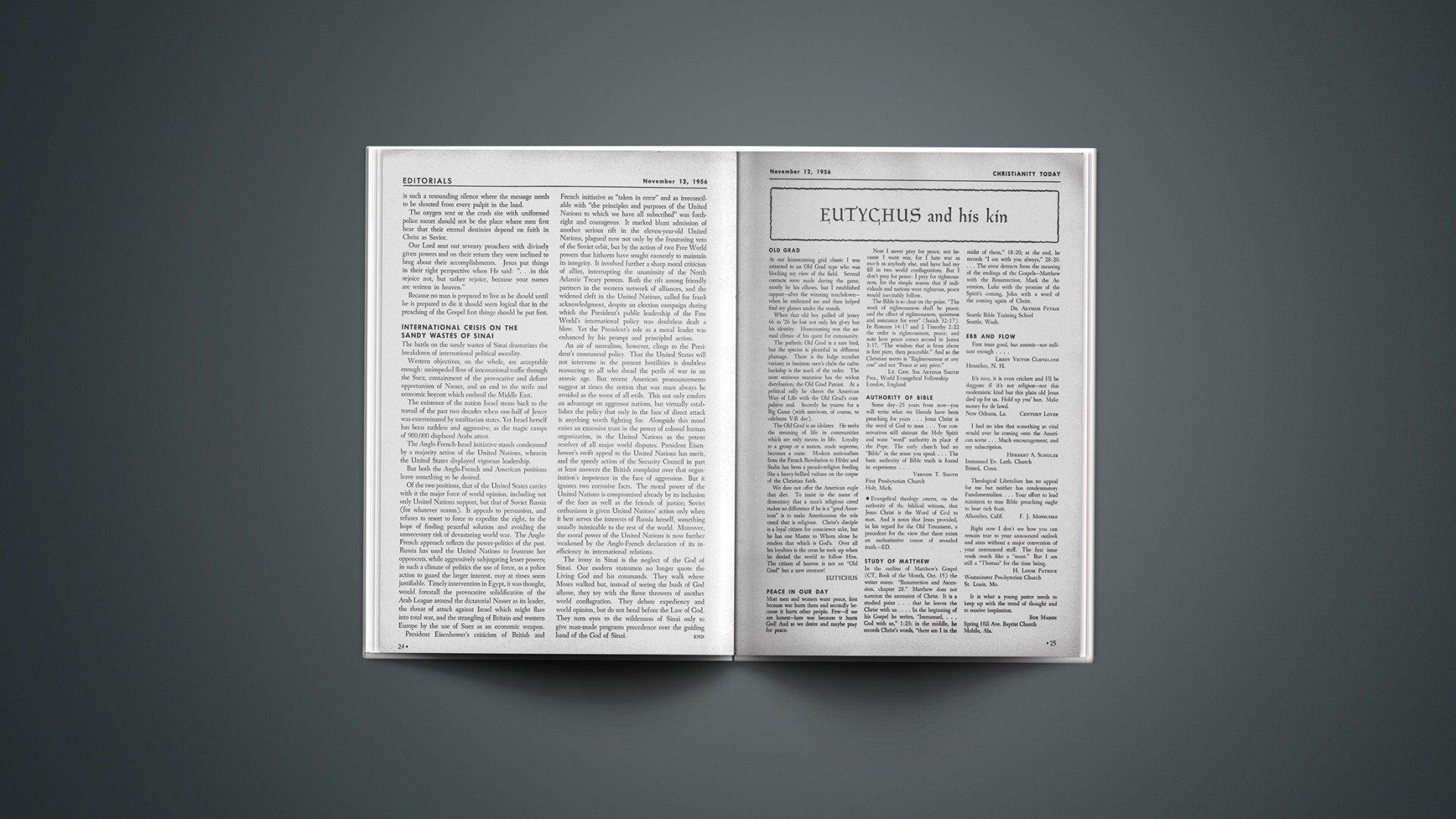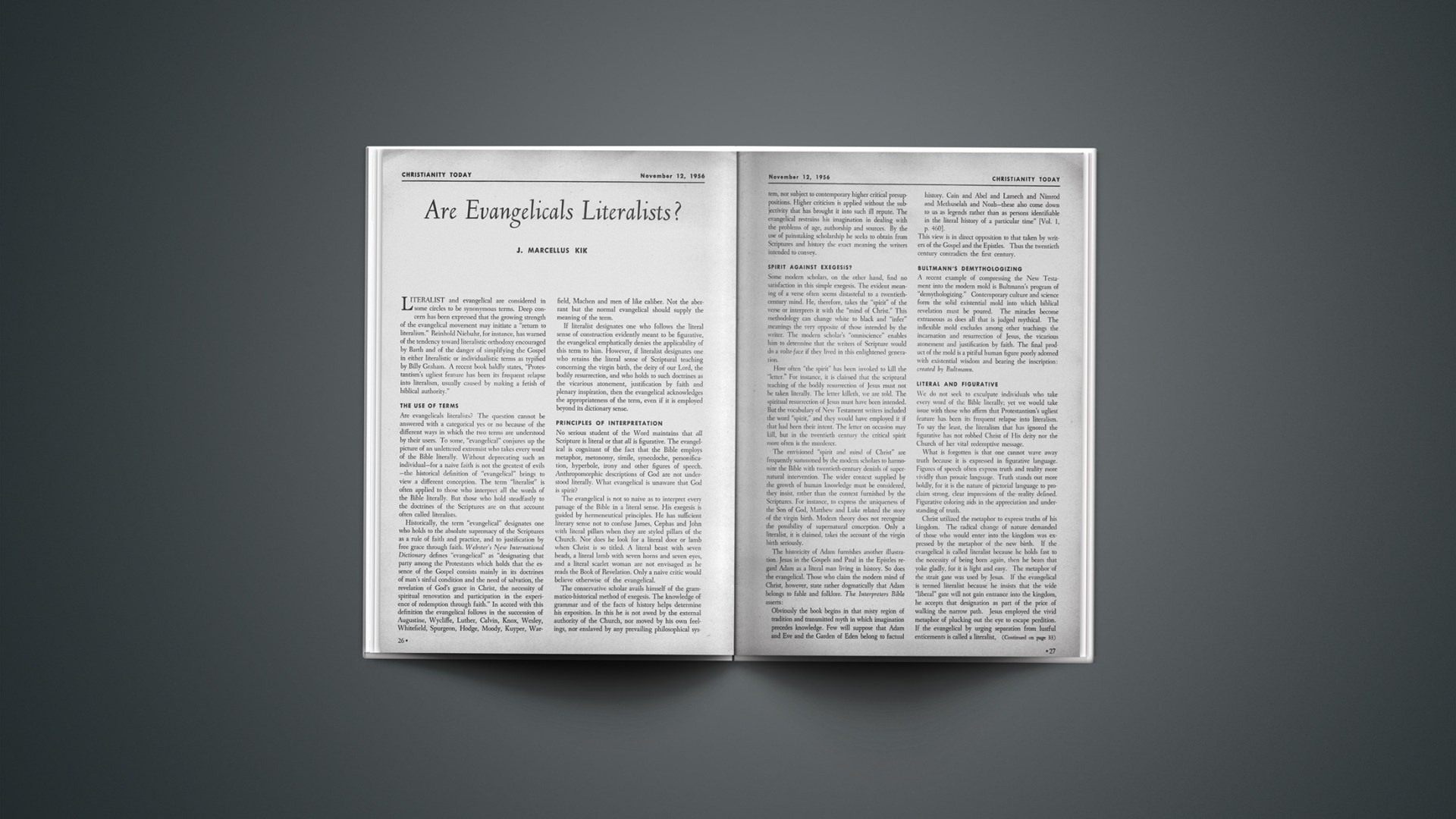The present day stream of literature in Europe dealing with religious and theological questions is best described as overwhelming. It appears that almost all the questions of the previous era are again being considered; also those that were given little attention by the past generation.
Restricting ourselves on this occasion to the dogmatical literature, we refer first of all to newly published dogmatical works such as: Werner Elert (Lutheran), Der Christliche Glaube, 1940; P. Althaus (Lutheran), Die Christliche Wahrheit, 1948; Th. L. Haitjema, Dogmatiek als Apologie, 1948; H. Vogel, Gott in Christo (1000 pages); O. Weber, Grundlagen der Dogmatik, Vol. 1, 1954 (a second volume will follow); H. Diem, Dogmatik, Ihr Weg zwischen Historismns und Existentialismus, 1955. In addition, not to mention more, two volumes of Barth’s Kirchliche Dogmatik (IV, 1 and IV, 2) appeared in 1953 and 1955.
¶ Alongside the Protestant activity there is a profuse stream of Roman Catholic dogmatical publications, some dealing only with particular subjects, some covering the whole field. Important particular studies are those of W. Stahlin, Allein. Reckt und Gefahr einer polemischen Formel, 1950 (dealing with the “sola Scriptura, sola gratia, sola fide” doctrines); and M. Lackmann, Sola Fide, Eine exegetische studie uber Jacobus 2 zur reformatorischen Rechtfertigungslehre, 1949. With respect to comprehensive Roman Catholic dogmatical works, a dogmatics (succeeding the old works of Scheeben, Pohle, Bartmann and Diekamp) is in the process of being published by Michael Schmaus, whose pen has already produced the volume on Mariology (1955).
In the Netherlands the beginning of a new dogmatics by P. Schoonenberg has been published under the title: Het Geloof van ons Doopsel (Vol. I, 1955; II, 1956). This is an important contribution because Schoonenberg is one of the most brilliant representatives of the so-called “New Theology,” a movement which arose in France about 1942 and which is letting itself be heard at the present time. This movement has given a different version of the relation between nature and grace than that found in the traditional Roman Catholic theology, as well as a trenchant analysis of the influence of philosophy on scholastic thought. Without speaking of a radical revolution, one can say that through this “New Theology” the controversy between Rome and the Reformation has taken on new aspects, especially since the criticism made by the Reformation was narrowly connected with the dualistic Roman Catholic vision of the relation of nature and grace. An important point in the discussions is the evaluation of the already famous papal encyclical of 1950 (Humani Generis), in which the new streams of irenism and existentialism were rejected, but in which also a warning was sounded against a relativizing of dogma and an underestimation of the significance of Thomas Aquinas. In spite of the fact that many were of the opinion that the “New Theology” was condemned by this encyclical, the representatives of this theology, through many publications, are playing a very important role in current discussions. We see in this movement one of the important phases of contemporary Roman Catholic thought.
¶ In addition to the literature concerning “Humani Generis” and the “New Theology”, the fixation of the Marian dogma of 1950 (the assumption of Mary) has received special attention. The interest here undoubtedly centers around an infallible proclamation (ex cathedra) because it is declared that whoever denies or doubts this dogma “has totally fallen away from the divine and catholic faith.” A very orientating study has been published by F. Heiler: Das neue Mariendogma im Lichte der Geschichte und im Urteil der Oekumene, 1951. It contains the views of many scholars with respect to this new dogma, including, among others, that of B. E. Mascall (Anglo-Catholic). From all sorts of angles the question is discussed as to the deepest meaning of this new dogma concerning Mary. It appears very clearly that the intention is not to deify Mary. The interest turns rather on the share that Mary (as creature) has in the redemptive work. In this light the Marian dogma takes on its distinct significance at the peak of the Roman Catholic system, because precisely this share of Mary is connected with her physical glorification in heaven.
Although in the above-mentioned “New Theology” new perspectives are visible in the Rome-Reformation controversy, this new Marian dogma has again pointed up the conflict in spite of all the attempts by Rome to demonstrate that its Mariology in no wise constitutes a threat to the glory of Christ as our only Redeemer. Already before 1950 there were signs pointing to the fact that the proclamation of the assumption of Mary would not yet mark the end of the Mariological development. We think of the feelings (not yet firmly established) concerning Mary as participating, not only in the subjective redemption (the distribution of the treasures of Christ), but also in the objective redemption. This dogma is at present not yet fixed, but already studies are appearing under titles such as: Mary as Co-Redemptress alongside Jesus our Lord. It is understandable that in this development there is a constant demand from the Reformation camp for scriptural proof. But tradition plays such a powerful role here that in the proclamation of 1950 of Mary’s assumption, no scriptural proof is given, and the only texts appearing in it are the citations to be found in the church fathers. The power of the Reformation remains here also the power of the “sola Scriptura”!
¶ Besides that already mentioned, there is in continental theology a many-sided interest in the theology of Luther. Excellent studies have been made, e.g., W. von Lcewenich, Theologia crucis, 1954; idem, Luther als Ausleger der Synoptiker, 1954; J. T. Bakker, Coram Deo, Een Bijdrage tot het Onderzoek naar de Structuur van Luthers Theologie, (dissertation at the Free University) 1956; R. Prenter, Spiritus Creator, Studien zu Luthers Theologie, 1954 (translated from Danish into German). In these studies there is a continual discussion of the relation between Luther and Calvin, and this is understandable because there is a growing feeling that in spite of all their differences (e.g., concerning the sacraments), a deep unity in faith bound these two reformers.
¶ It is impossible in any respect to set forth in one “review” a complete survey of what is now in the center of interest in continental reflection. This incompleteness already appears in the fact that we have made no mention up to this point of the continuing discussion surrounding the theology of Karl Barth, who recently put his doctrine of redemption into print (IV, 1 and IV, 2). In commemoration of Barth’s seventieth birthday many articles and “Festschrifte” have reviewed his theology anew.
G. C. Berkouwer, Ph.D., is Professor of Systematic theology, Free Universty of Amsterdam.

